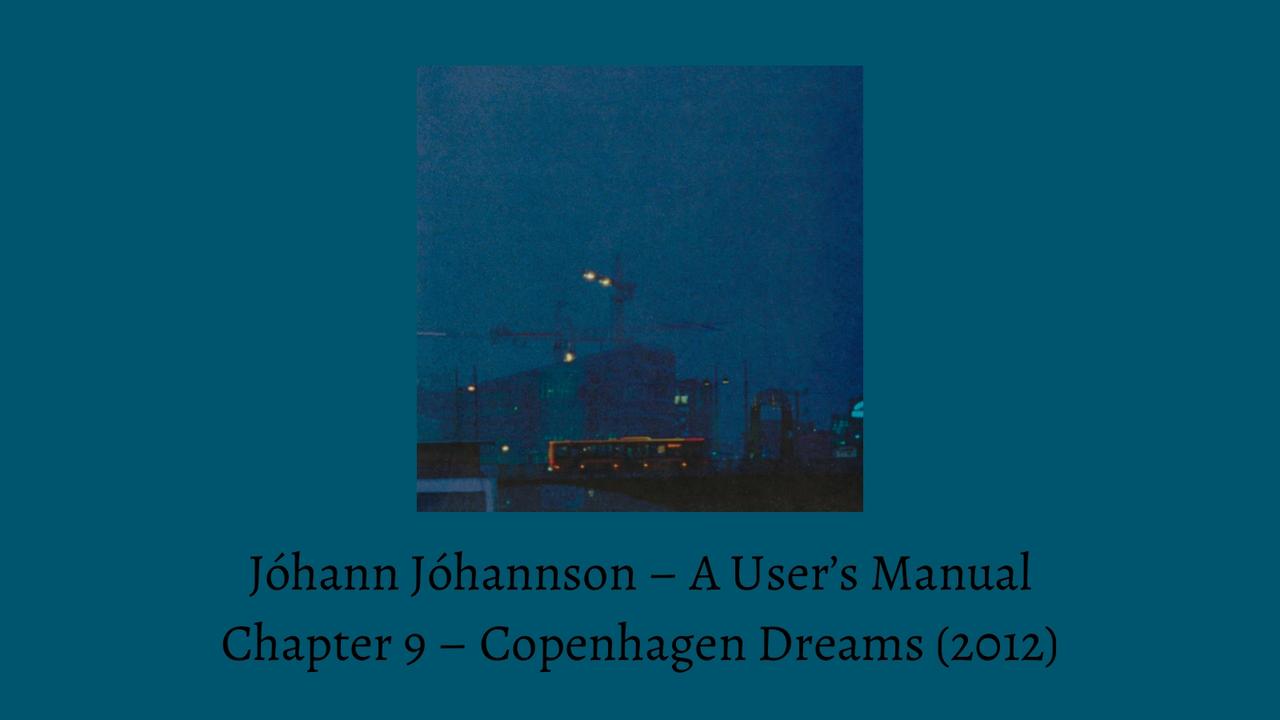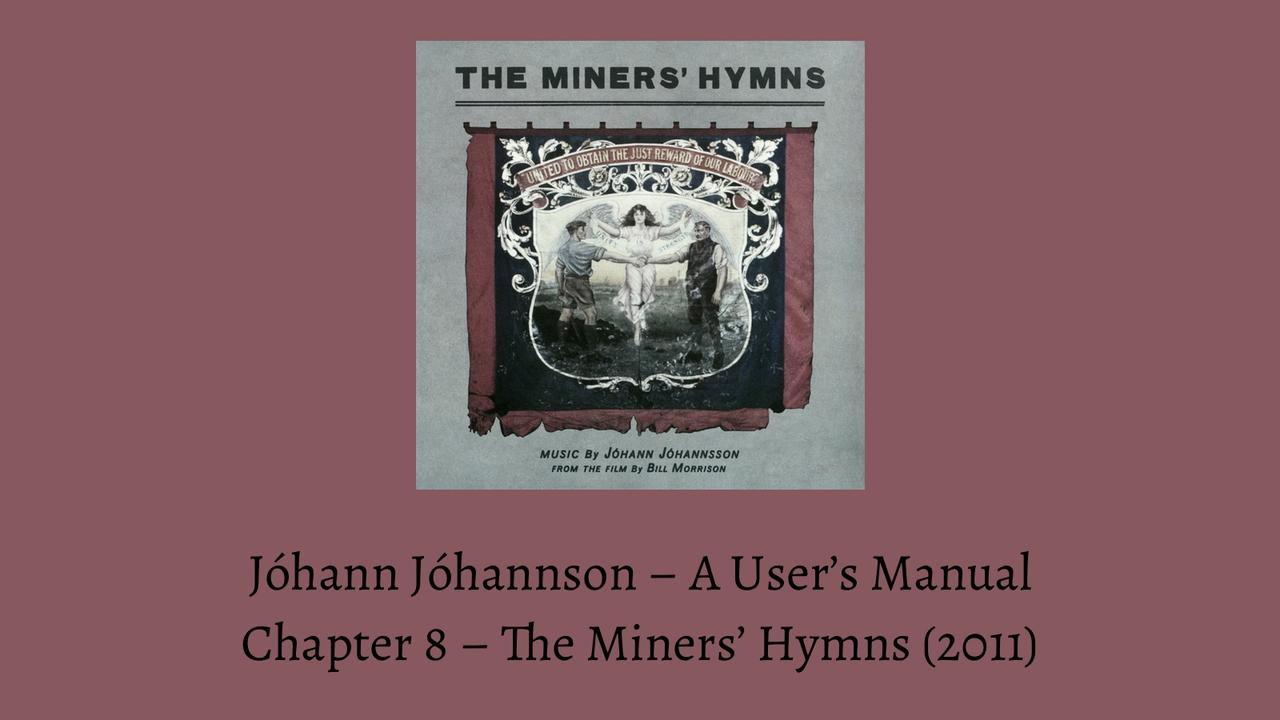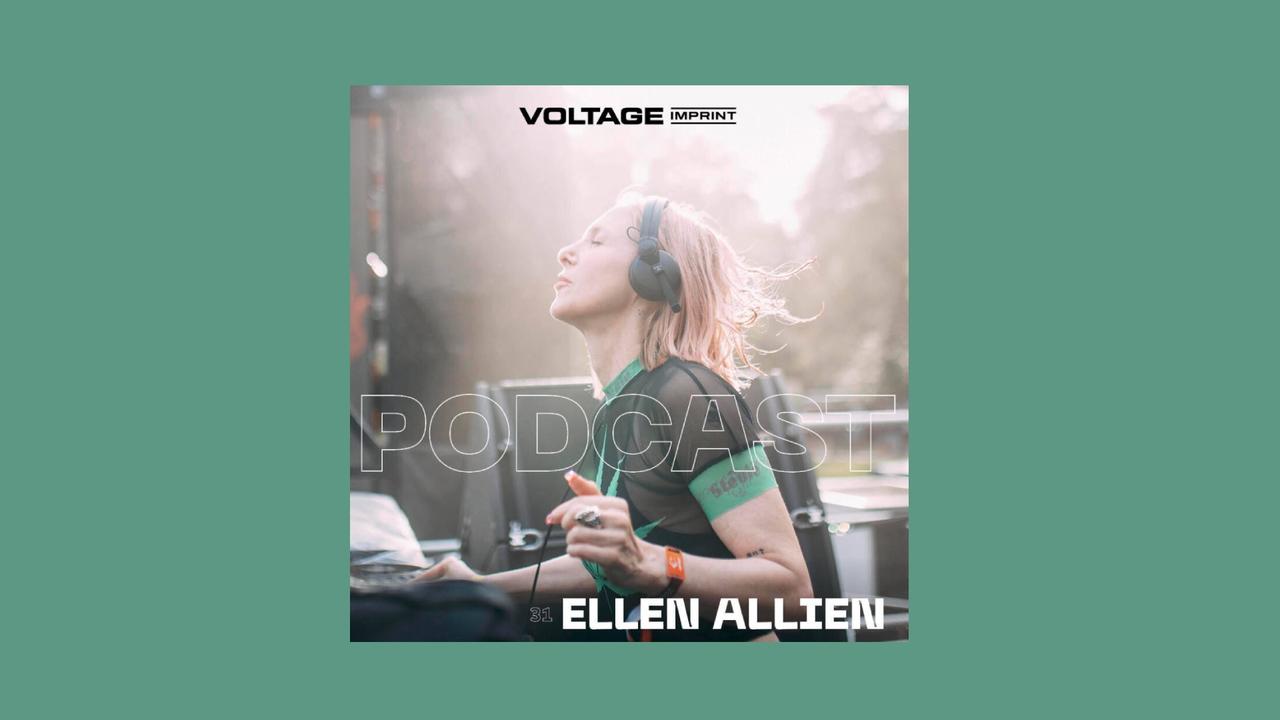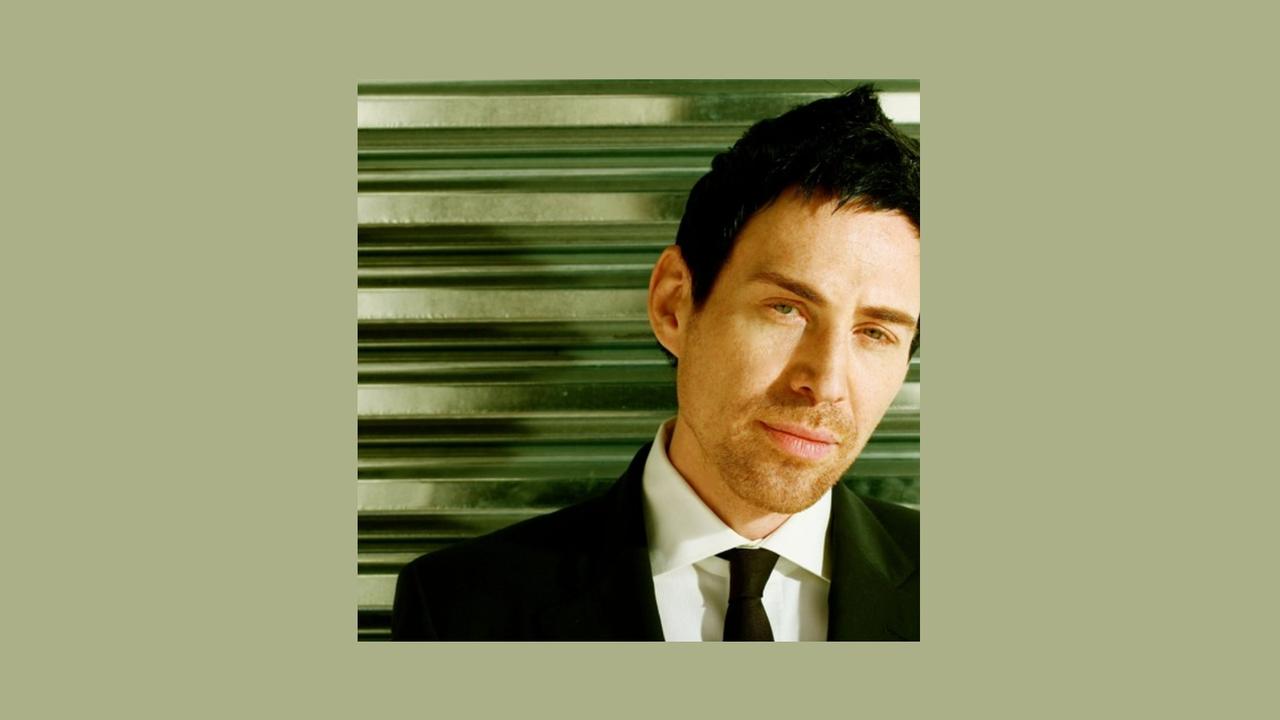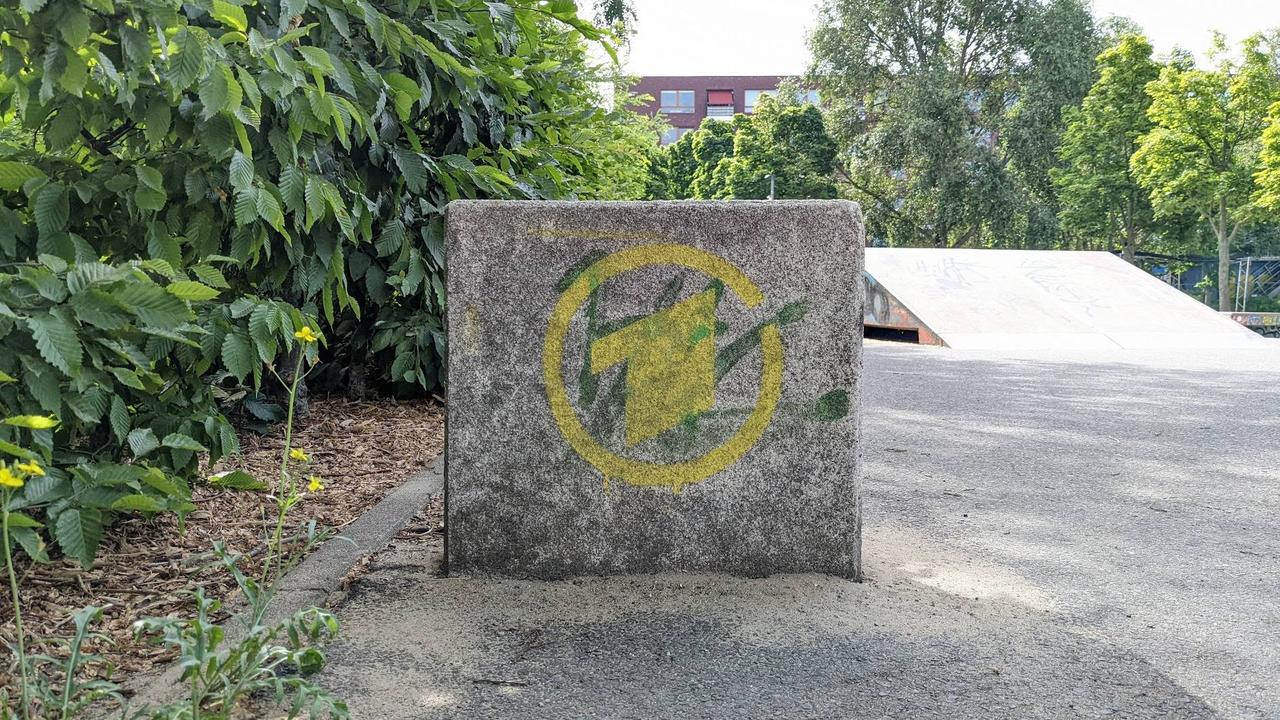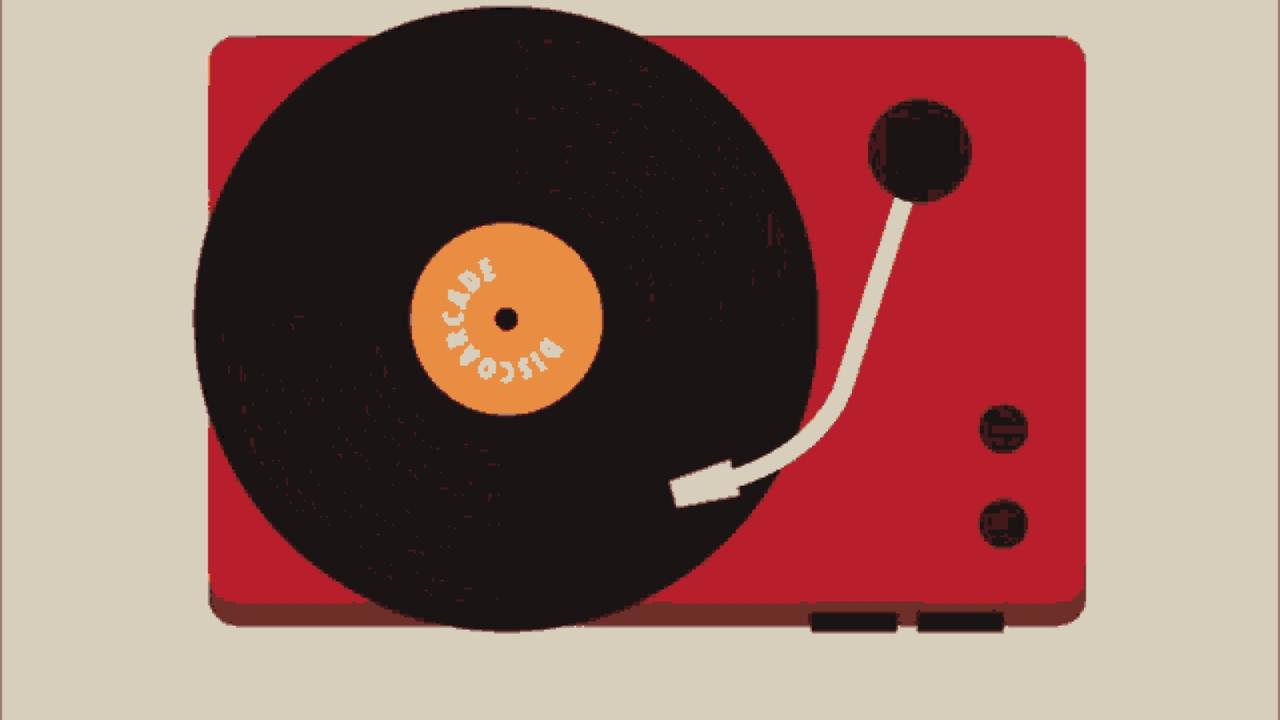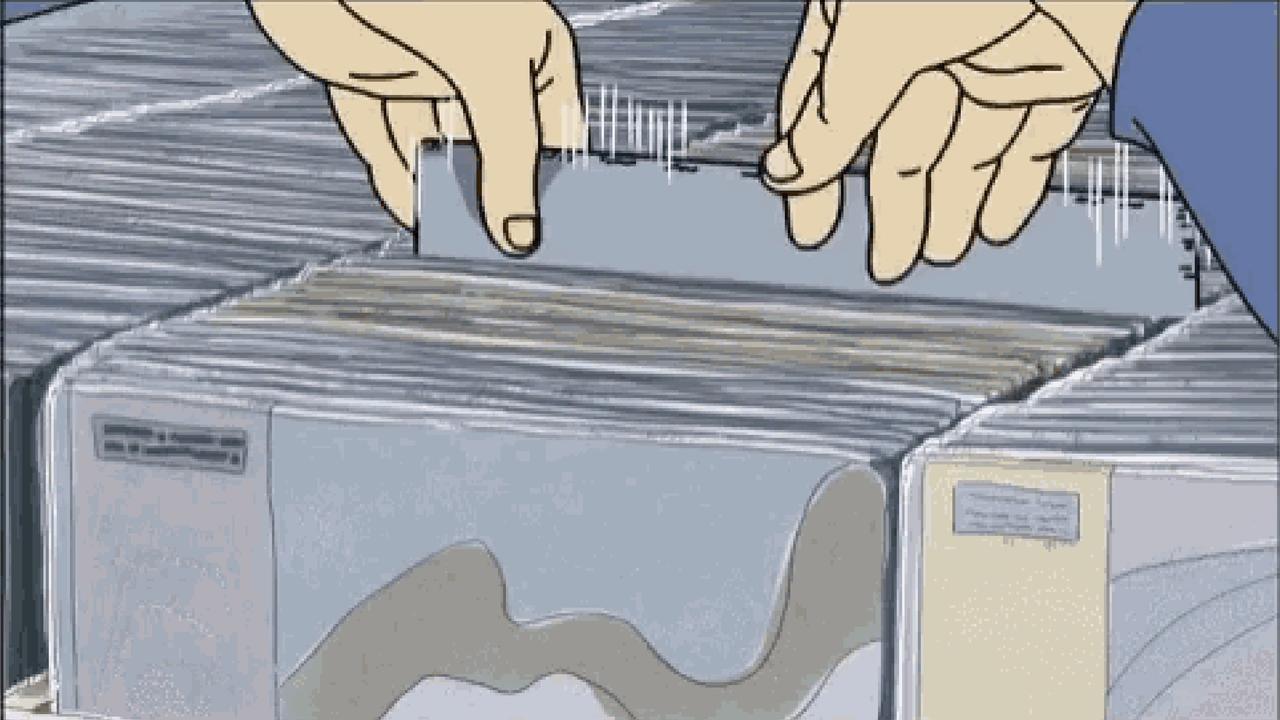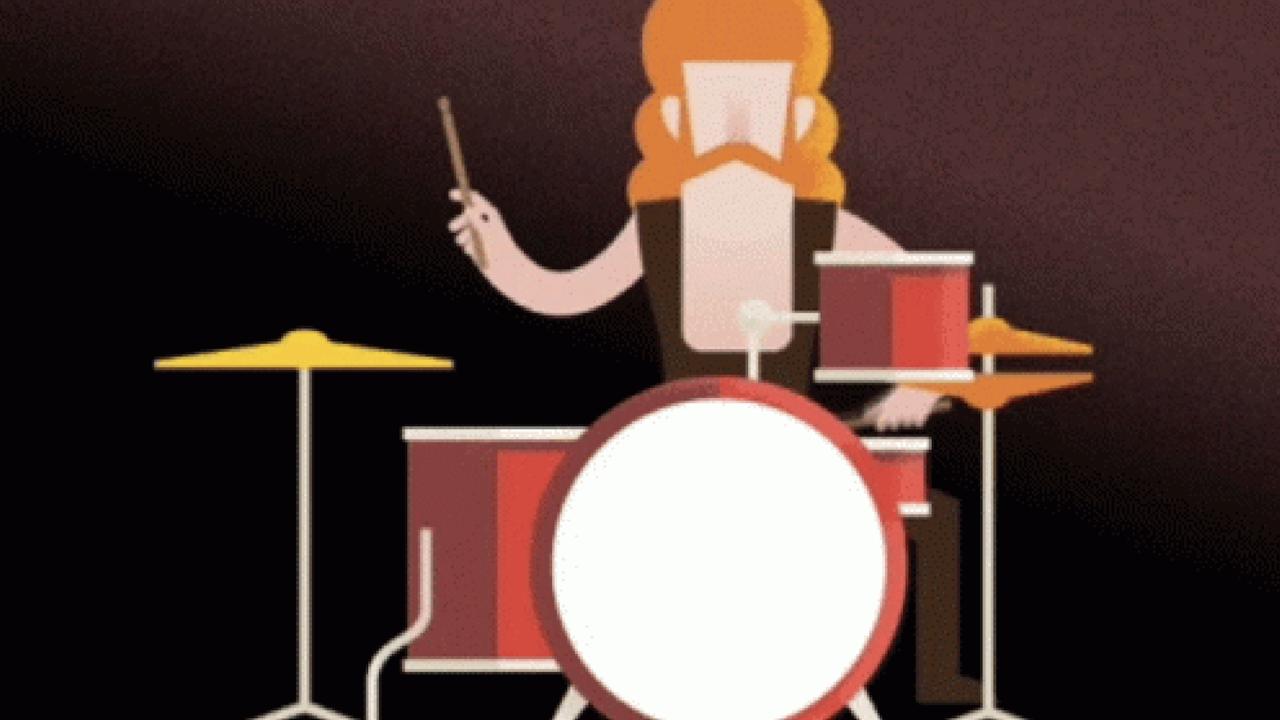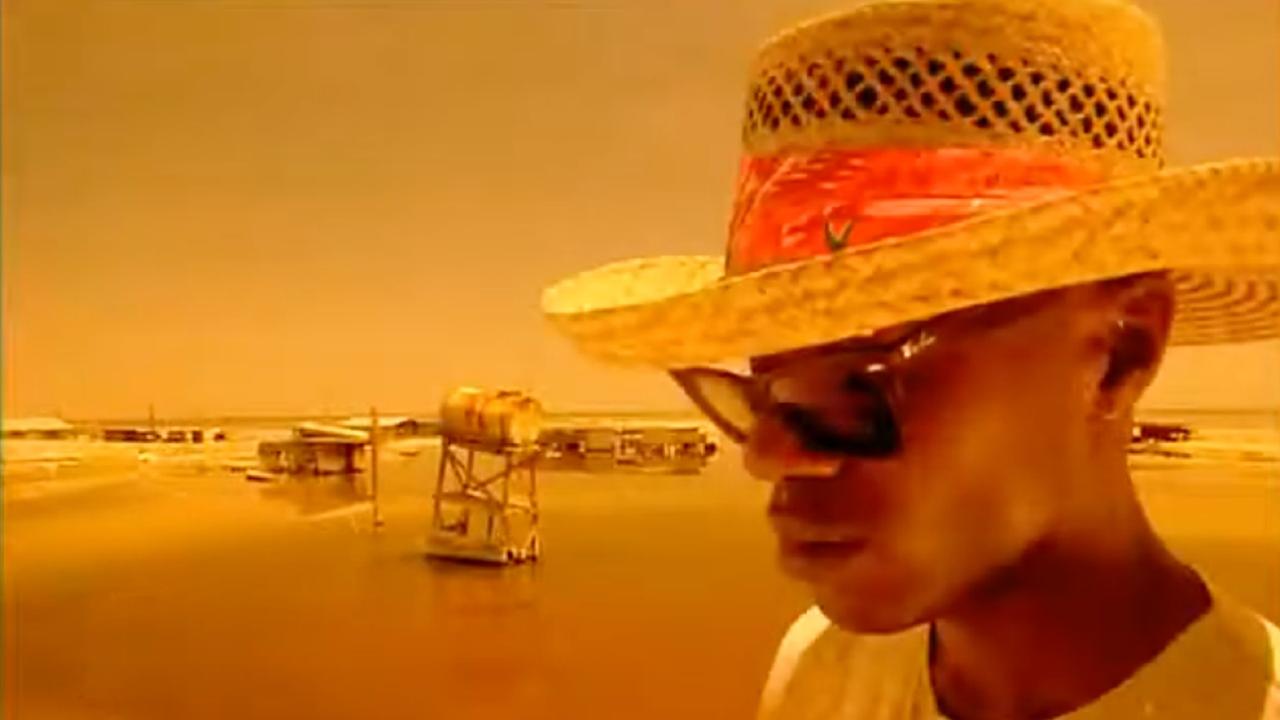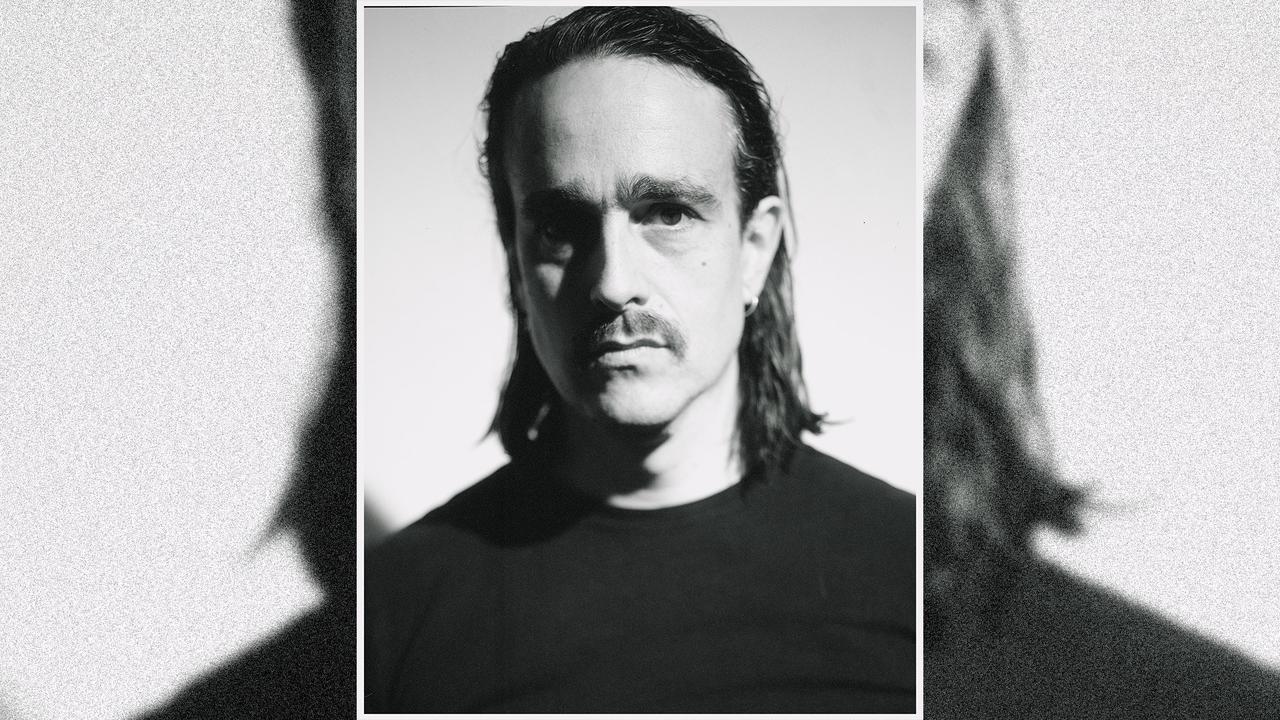Jóhann Jóhannsson – A User’s ManualChapter 10 – White Black Boy (2012) – English
13.7.2022 • Sounds – Conversation: Kristoffer Cornils, Thaddeus Herrmann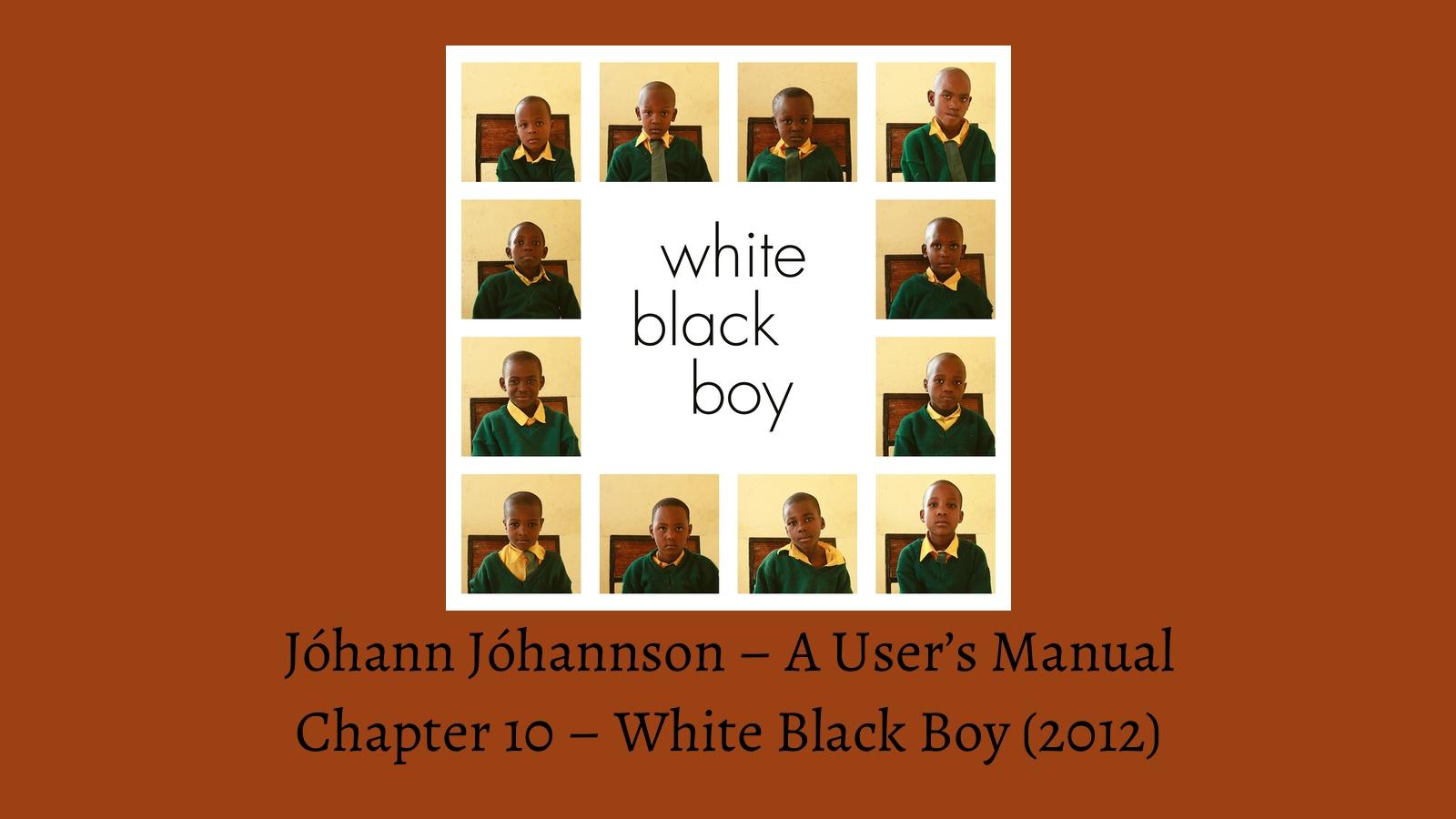
Jóhann Jóhannsson has released well over 20 albums in his career. Who knows how many sound documents still lie in the drawer that could be released posthumously. Kristoffer Cornils and Thaddeus Herrmann regularly review the composer's work—chronologically, album by album. In the tenth edition, they devote themselves to a soundtrack work that was released seven years after the associated film: "White Black Boy" by Camilla Magid.
Deutsche Version? Hier klicken.
Or rather: "Sort hvid dreng". The documentary film, which clocks in at just under an hour, is a Danish production, filmed in Tanzania. It focuses on Shida, a boy who is in constant danger. His albinism—the album cover may be misleading, but the English title gets to the heart of the matter—makes him prey for criminals who want to sell his body parts and blood to magicians. Which is why Shida, like other children with albinism, is sent to a boarding school, where they are immediately confronted with the next hurdle: All the other kids speak English, but they only speak Swahili. This sounds almost too fanciful (and cruel) to be true, and indeed this documentary almost looks like a feature film. The impressive images are accompanied by Jóhann Jóhannsson's music, which, however, was only released by Deutsche Grammophon in 2019, seven years after the film's premiere.
Kristoffer: We are already dealing with the next posthumously released soundtrack after "Personal Effects" and the second commissioned work of 2012 after "Copenhagen Dreams"—we will turn to the third next time. We can see that, as the decade dawns, Jóhannsson's career as a soundtrack composer takes off. And indeed, it is to take a while before he reports back with passion projects like "End of Summer" and finally his next solo release, "Orphée". This album here was released rather quietly in 2019. Therefore, the music passed me by until I had a look at our schedule for this series and realised that there were 13 previously unheard tracks waiting for me. I first listened to them over the phone, so rather lo-fi. It was a beautiful day in late spring and I was working away in the kitchen, if I remember correctly. "White Black Boy" provided the perfect soundtrack for this moment and the rather mediocre playback quality seemed to add to the whole thing rather than ruin it. Many of these pieces have a certain patina anyway, much like on "Copenhagen Dreams". Only the basic tone is much friendlier, lighter—less melancholic. That's surprising given the subject of the film. But anyhow, I like this soundtrack very much. The film's success seemed to have been moderate, the IMDB the algorithm only suggests other indie productions to which Jóhannsson has contributed the soundtrack, which I think is a clear indication that it did not really leave a mark. I haven't watched it yet, but would love to. How do you feel about it? I had the impression from the start that you weren't a particularly big fan, at least of the music.
"Compositionally, the soundtrack doesn't really stand out."
Thaddi: Not until I watched the trailer. Soundtracks are weird. You watch a film, the music supports it. But if you listen to the music separately from the moving image—as in this and my case—you only evaluate the sound on the basis of the music itself. I have no problem with that at all: it's just that the soundtrack doesn't really stand out compositionally. The light tone, which you described earlier and quite correctly, is wonderful. I also imagine that this is the first time in Jóhannsson's oeuvre that I have ever heard him expose sound particles to granular synthesis, thus almost imperceptibly emphasising the electronic component of his music.
We’ve had to re-schedule this appointment quite a few times. Which basically made me listen to the album for days on end. I found it very pleasant - but I still couldn't hum along. And it actually happens to me quite often that I hum or mumble passages from Jóhannsson's albums, depending on the timbre.
Kristoffer: That's my cue point again for confessing to never remembering individual motifs and melodies, isn't it? At least it's a common thread in our conversations. It's the same here, but that may also be due to the late release. Hypothetically speaking, can you imagine that you would have grown much more fond of this soundtrack over the years if it had been released in 2012?
Thaddi: Hard to say, really. In the past few weeks I have not only listened to this album a lot, but also increasingly to the older works that we have all already discussed. I feel much more drawn to many of these albums, simply because they have more impact, resonate more in my heart. This decidedly "friendlier" mood, the lightness of the motifs: all that is good, but culminates for me a few years later in "The Theory Of Everything". So: I probably would have argued similarly back then. Without knowing, of course, what would await me in the years to come.
""White Black Boy" offers hope!"
Kristoffer: Come on, let Jóhannsson be happy for once! All jokes aside, I actually consider this soundtrack to be a kind of inverted "Copenhagen Dreams", though I would have indeed preferred that one over this record. I always prefer the melancholic Jóhannsson. Nevertheless, I have to defend "White Black Boy" as something much more than just a preliminary sketch for "The Theory of Everything"—we'll discuss one that fits that description much better in the next issue of this series. On a compositional level, this Jóhannsson carrying out his regular stocktakings, though I have to stress that I nonetheless think he managed to make his music sound special even when banging out one soundtrack after another, at least in this case. These 13 pieces clearly bear his signature. I find as remarkable as the tone. The film is so aesthetically pleasing from a cinematographic point of view that I had to double and triple check whether this is really a documentary and not a feature film. And yet, the subject of these pleasing images remains rather dark. It's about being different, about social isolation and being an outcast—and it has a very urgent existential dimension, too. But then there is this music, almost promising a happy ending. Whether that comes at the end of the film, I don't know—as I said, I haven't seen it (yet!). But as a soundtrack in itself, "White Black Boy" seems to offer just that: hope!
Thaddi: If Jóhannsson didn't compose and arrange his music in such a special way, we wouldn't be sitting here for the tenth episode of our series. He had the strength, the great skill, to always provide even "commissioned works" with his very own signature and not to make them sound as generic as a similar score would have sounded from the depths of Zimmer's universe. Without wanting to sound disrespectful: Hans's work is all done by the interns, isn't it? The studios are certainly equipped with a large number of handy ProTools templates that can be used to bang out a soundtrack at a moment's notice. But I digress. What did I want to say, or rather: write? Ah, right: Jóhannsson is so deeply rooted in his cosmos that he always manages to make certain elements in the orchestral arrangement sound special. Consciously or unconsciously? I have no idea. But that is precisely what is special about his art.
Kristoffer: To be more precise, this is more of a chamber music arrangement. The piano plays a big role, now and then dabs of xylophones or glockenspiels (not sure!) or other devices that have accompanied him in his practice since ["Englabörn"]/sounds/johann-johannsson-a-users-manual-chapter-1-englaborn-2002-english). On the one hand, it is the instruments themselves and, on the other hand, precisely the reduced ensemble as such that contribute significantly to his sound here—as well as, of course, the electronic sounds, which, however, unlike on his albums or later soundtracks such as "Sicario" or "Arrival", are used primarily for the sound design and less as independent elements. If I had to sum up the mood of this soundtrack in one word, it would be intimacy. Jóhannsson creates it here with familiar, but tried and tested means. Of course, this is not him at his most innovative. But I "White Black Boy" is still a beautiful work.
Thaddi: And it is indeed remarkable how the intimacy on this record floods the senses. I feel it in almost all of Jóhannsson's work, just realised very differently. In other words, if Jóhannsson were Michael Schanze, his TV show for children could not have been called "1, 2 or 3", because he has at least 450 different doors, answers, possibilities on offer. Not all composers can do that either.
